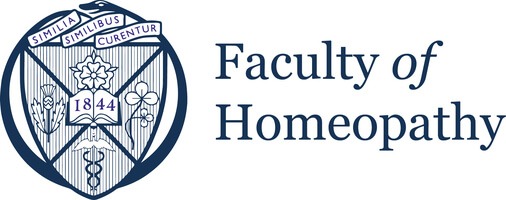The possible ability of high doses of vitamin C to improve the treatment and prognosis of cancer patients is an area of substantial controversy. Although there are some encouraging small studies indicating benefits with large doses, more research is needed to elucidate the value and safety of treating cancer with high dose vitamin C.
In this article, we will discuss the research that has been conducted on high dose Vitamin C for cancer so far. We will look at what the research shows about its potential benefits in helping to treat certain types of cancer as well as potential risks associated with it. We will also explore potential mechanisms behind this effect and provide advice on how patients can be safely treated with Vitamin C supplementation.
Vitamin C, also known as ascorbic acid, is a water-soluble vitamin with essential and antioxidant properties. Its most notable health benefit is its ability to help reduce oxidative stress throughout the body due to its antioxidant activity. Vitamin C is naturally present in some foods—particularly fruits and vegetables—and is also added to many food products. It is also available in supplement form either on its own or in combination with other nutrients and vitamins.
Vitamin C plays an important role in the body, in addition to acting as an antioxidant. It helps form collagen, which forms the basis of bones, cartilage, skin and tendons; maintains healthy skin; repairs tissue damage caused by injury or disease; strengthens the immune system's ability to fight infection; supports healthy iron absorption; and improves wound healing times. Research suggests that higher doses of vitamin C may have additional benefits for certain health conditions.
Though initially studied as a possible cancer treatment in the 1970s, high-dose vitamin C has reemerged as an increasingly popular complementary therapy. Vitamin C is commonly found in foods such as oranges and other citrus fruits, green peppers, strawberries and leafy greens, but when taken in higher doses than what can be obtained through diet alone it is believed to offer potential benefits for those diagnosed with cancer.
High-dose vitamin C may help to reduce disease severity by potentially preventing cancer cell growth and acting as an antioxidant meant to aid in the improvement of patients' overall health. Studies have shown that taking high doses of vitamin C have led to improved quality of life, better survival rates and increased circulating levels of Vitamin C -- particularly among those who received the high dose intravenously. Additionally, evidence suggests high dose vitamin C can reduce fatigue, nausea and pain in cancer patients while improving their physical performance.
When administered orally or intravenously at doses ranging from 5g - 200 g per day , high-dose vitamin C also shows promise in assisted chemotherapy regimens due to its anti-inflammatory properties which can decrease side effects related to standard treatments such as radiation therapy or immunotherapy. Though research is still ongoing into how effective different kinds of the therapy will be at treating different forms of cancer it's important that you consult with your physician before beginning a vitamin C regimen either on its own or alongside existing treatments.
High dose Vitamin C may be beneficial in cancer treatment. There is a growing body of evidence that suggests that high doses of Vitamin C can help reduce stress on the body and help fight cancer. Although, there is no definitive scientific evidence to prove it, let's dive into the potential benefits and drawbacks associated with the use of Vitamin C for cancer patients.
The idea of using Vitamin C (ascorbic acid) to help treat cancer first came to light as early as the 1950s with Nobel laureate, Dr Linus Pauling proposing it is essential in preventing cancer. Since then, there has been plenty of research dedicated to understanding the potential effects of high doses of vitamin C on cancer patients.
Early studies attempted to investigate the potential therapeutic effects of vitamin C on patients undergoing chemotherapy and radiation, though it was only towards the end of the century that these ideas became more firmly established due to greater understanding on the biological action of vitamin C and its cellular effects on tumor cells. It was found that higher concentrations of Vitamin C, especially when infused directly into a tumor, can selectively destroy malignant cells by a process called pro-oxidant therapy or oxidative stress. This increased apotosis or programmed cell death in malignant cells without affecting healthy surrounding tissue.
High doses of vitamin C has also shown promising results as part of a comprehensive treatment plan for certain types cancers such as ovarian and pancreatic tumors. These results have since become well known around the world, leading many people who suffer from cancer to start considering Vitamin C therapies as part solution attempt to manage their disease. Unfortunately due to inadequate funding and little investments into its clinical development, these relatively new treatments remain largely unexplored till this day despite growing evidence on its potential health benefits in battling different types cancers.
High doses of vitamin C have long been studied as a potential cancer treatment. While laboratory studies and anecdotal evidence have suggested that high doses of vitamin C can help fight cancer, rigorous clinical trials have yet to show definitive results.
The primary theory behind the effect is that vitamin C can work with other substances or processes to help reduce damage from certain toxins in the body or disrupt the growth cycle of cancer cells. In laboratory studies, these effects have been observed with many different types of cell lines, both in vitro and in vivo. Additionally, high doses of vitamin C intravenously appear safe and cause few side effects in patients being treated with chemotherapy drugs or radiation therapy.
Despite this evidence and decades of research, no randomized controlled trial has been able to demonstrate a clear positive impact on survival rates for people with cancer when taking high dose vitamin C. Smaller trials looking at symptom relief also remain inconclusive at this stage.
It is important to note that while the current research cannot prove the efficacy of high dose vitamin C as a cancer treatment, any supplement should be discussed with a doctor first before adding it to your treatment regimen. Vitamin C can interact poorly with certain medications used to treat cancer like some chemotherapy drugs; understanding these interactions is key for safety when considering any supplement therapy as part of cancer care.
High dose vitamin C, or ascorbic acid, is a water-soluble vitamin that's naturally found in some fruits and vegetables. It has a range of potential benefits for your health, such as boosting your immune system, reducing inflammation and helping to maintain healthy levels of cholesterol. It's also been studied for its potential use as an alternative treatment for cancer.
Studies have suggested that high doses of vitamin C may help to fight cancer by targeting specific cancer cells while leaving healthy cells alone. In addition, it may help boost the effectiveness of certain types of cancer treatments such as chemotherapy and radiation therapy. High doses may be particularly promising for those with advanced stage cancers who are looking for additional support throughout their journey.
More research is needed to further understand how high doses of vitamin C could specifically benefit those with cancer and determine if it could be an effective treatment on its own or as part of an integrative approach. Potential side effects may include nausea, fatigue, gastrointestinal disturbances and kidney stones; therefore, it’s important to work closely with your doctor if you’re considering high dose vitamin C therapy so they can help monitor the safety and results.
High dose vitamin C is a non-conventional anti-cancer therapy and is available in the form of intravenous (IV) or oral vitamin C. It has been suggested by some studies that high doses of the vitamin can help to target cancer cells, leading to tumor regression and potentially improve overall survival. However, there are potential risks associated with taking high doses of vitamin C.
The most common side effects reported when taking high doses of vitamin C include nausea, vomiting, abdominal cramps, diarrhea, fatigue, muscle and joint pain and headache. Higher amounts can also cause severe rebound scurvy or pancreas problems in susceptible individuals. Furthermore, a rare but serious complication is kidney stones which may occur more often with oral ingestion rather than IV administration of this treatment. In general though the side effects from high dose vitamin therapy are generally minor and can be managed with over the counter medications such as acetaminophen or ibuprofen.
It is important for patients considering this type of treatment to consult their doctor for an assessment before continuing further with it due to possible risks from side effects related to Vitamin C toxicity.
Overall, there is still a debate among healthcare professionals on whether high doses of vitamin C can produce significant therapeutic benefits in cancer patients. Some research suggests that consuming the recommended daily allowance of vitamin C can increase patients' overall quality of life or reduce chemotherapy side effects, but scientific evidence to prove its efficacy in treating cancer is still inconclusive. Therefore, although it may be helpful to use dietary supplements and incorporate more fruits and vegetables into one's diet for general health benefits, taking high doses of vitamin C for the treatment of cancer should only be done under careful medical supervision.

Consultant in General Internal Medicine (GMC reg. number: 7541548) and Specialist in Complementary Cancer Care
MBBS, MRCIM (Spain), MSc Homeopathy, MFHom, Master practitioner in Ericksonian Hypnotherapy and Neurolinguistic Programming, MSc in Nutrition
Integrated medicine Doctor and Holistic Medicine Practitioner



